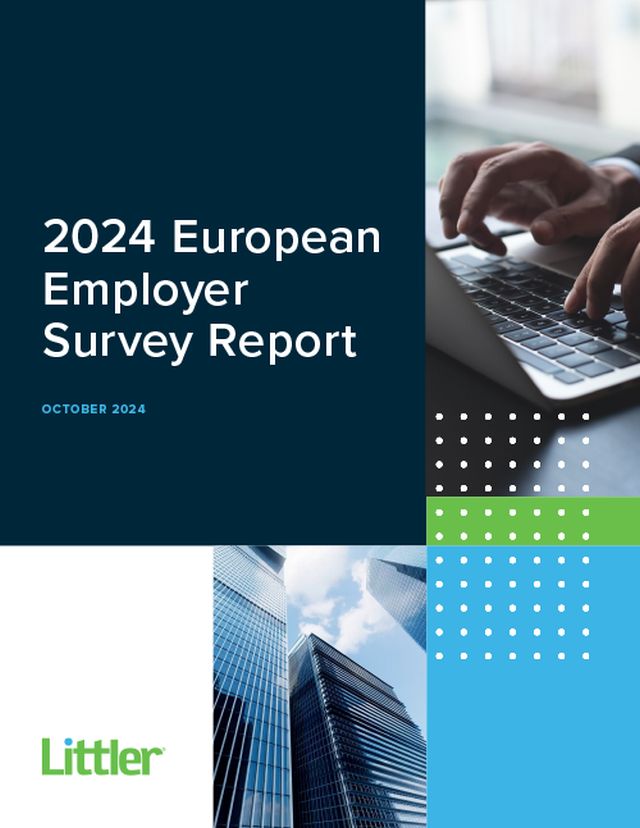- within Transport topic(s)
European businesses are navigating numerous changes impacting their workplaces, driven by factors that range from national election outcomes and the rapid adoption of AI to ESG initiatives and emerging compliance challenges.
Littler's seventh annual European Employer Survey – completed by nearly 630 business leaders, in-house lawyers, and HR executives (57% of whom hold C-suite positions) – offers an in-depth look at how business leaders are responding to these issues and steps they are taking to prepare for what's to come.
In a year that will see nearly half the world head to the ballot box, this year's report finds that political issues are top-of-mind. The majority of European employers (86%) say they are facing at least some degree of difficulty managing divisive political beliefs in the workplace. Most also say they are concerned about employment law changes stemming from 2024 or 2025 elections across Europe (83%) and the potential impact of the U.S. presidential election on their business operations (77%).
These obstacles are exacerbated by other economic, geopolitical, and cultural trends. Over 60% of respondents report substantial concerns about the effects of economic conditions on workforce management over the next 12 months. More than half (53%) say the same about social and cultural issues, while 37% are troubled by geopolitical risks over the coming year. Technology transformation is generating concern among employers as well, particularly as 72% of HR departments now incorporate AI into at least one aspect of their work.
This year's survey report also includes comparisons between U.S. and European employers, where applicable, and breaks out country-specific results for some of Europe's top economies.
View Littler's 2024 European Employer Survey Report
The content of this article is intended to provide a general guide to the subject matter. Specialist advice should be sought about your specific circumstances.







